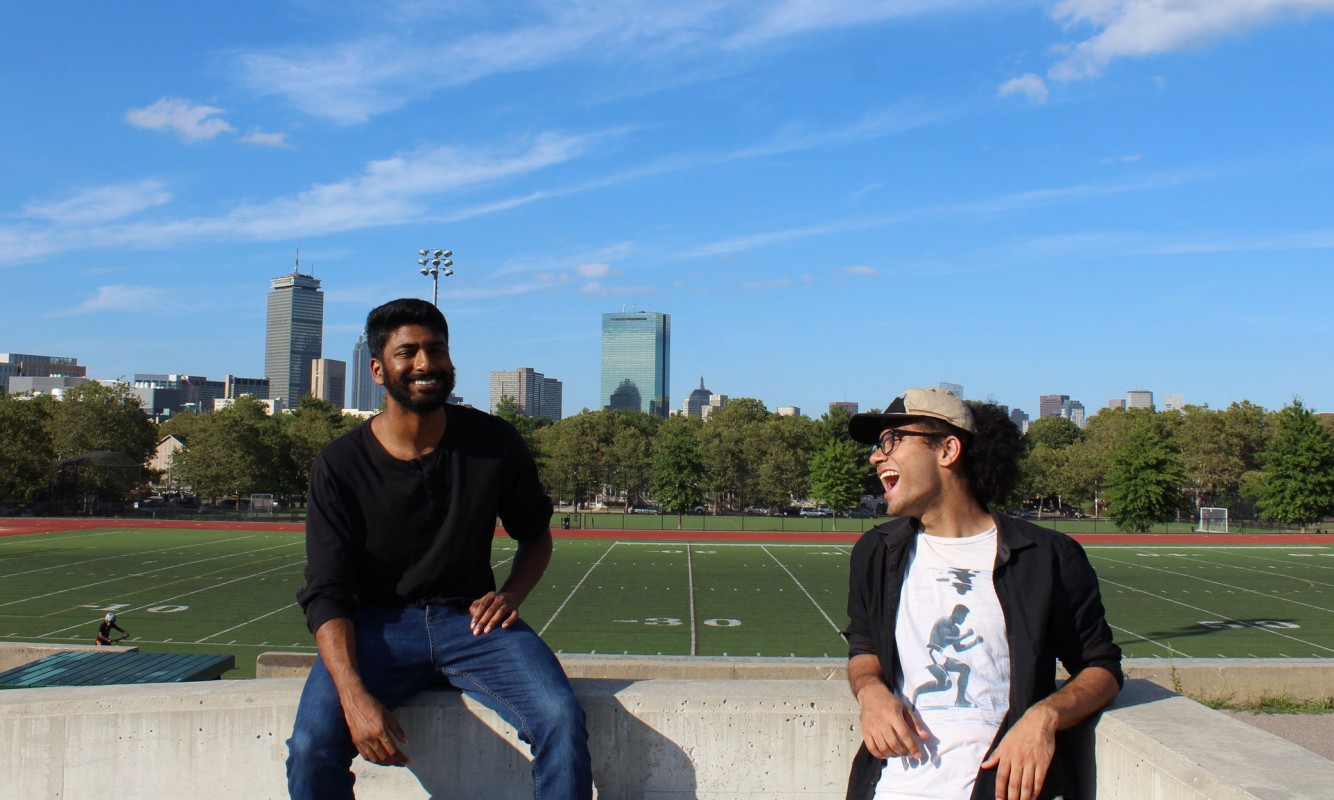Departments In This Story
Sarah J. Jackson, Assistant Professor in Communications Studies, first got to know Northeastern students Joe Tache and Prasanna Rajasekaran through classes and student organizations. They all share a passion for exploring and researching social justice issues, so when the two students asked Professor Jackson to be their faculty advisor for an independent research project on the impact of the War on Drugs on Boston’s African American community, it was an easy, and exciting, decision to jump on board.
“Ultimately, what sold me on advising the project was the commitment Joe and Prasanna had to representing the voices of a neglected community, and ensuring that community got to tell their story for themselves,” explained Professor Jackson.
Joe and Prasanna certainly succeeded in representing these unheard voices – the result of their hard work is a podcast that the public can enjoy and learn from entitled Colored: Crack Cocaine, the War on Drugs, and the Making of Post-Civil Rights America. It is a seven-part series that explores the racial dynamics behind the War on Drugs and the crack cocaine scare, drawing from the perspective of Black Americans living in Boston. Each episode focuses on a specific theme, building up to conclusions that extend far beyond drug policy.
When getting started, the students knew they wanted to do a podcast on racial justice, but had not yet picked a focus. They narrowed it down after coming across a series of tweets that questioned whether people understood how badly the crack epidemic had affected urban communities of color in the late 1980s. After some preliminary research, Joe and Prasanna realized the crack scare was deeply tied to modern racial discrepancies in the criminal justice system and the way people view and understand race today. They knew it was a relevant, important topic that deserved to be looked at more closely.
“Race can be very hard to understand. In America, we have a tendency to downplay its significance, to convince ourselves that racism doesn’t permeate large swaths of society, but the crack scare would suggest otherwise,” said Prasanna. “Not only does it exemplify how racial bias shows up in the laws we create, it highlights the more covert nature of race – how it infiltrates our belief systems and perceptions of others. By exploring the history of the crack scare, our podcast illuminates how race operates in society today, which is something we all should think a lot harder about.”
When it came to choosing a mentor for their project, they knew they wanted someone who encourages students to think critically about race and how it intersects with other identities and social factors, such as sexual identity, gender, and socioeconomic class.
“That type of thinking is critical to this project, and we wanted a mentor who could help us be sure we were always asking the right question,” explained Prasanna. “Given that criteria, Dr. Jackson was an easy choice, and she was gracious enough to agree to being our mentor.”
Under Dr. Jackson’s guidance, Joe and Prasanna asked many questions throughout their research, interviewing an impressive list of people, including community members, activists, and scholars. The students reached out to these folks through e-mail to set up phone calls and meetings, and their interviewees, despite being busy, were often happy and eager to talk. As Prasanna points out, this process also acted as a chain reaction, or what researchers call a snowball effect, since one interviewee would refer them to another, who would then refer them to someone else, and so on.
From effectively interviewing subjects to harnessing the power of storytelling to share meaningful, personal experiences and scholarly research with the public, communication is at the center of Joe and Prasanna’s project.
“They also discuss the idea of ‘selective listening’ in their project and podcast and this is hugely important to ideas in communication about power, access, and whose stories are told and in turn shape our national culture and politics,” said Professor Jackson. “They have designed a project that centers voices and stories that are often ignored and in doing so have challenged the selective listening many of us engage in that only includes official versions of a particular issue or story.”
The goal of the podcast is to inform audiences so that they can walk away from each segment with more knowledge and understanding than they had before listening. Joe and Prasanna have discussed the possibility of creating a second season on a different racial issue, so be sure to stay tuned!





